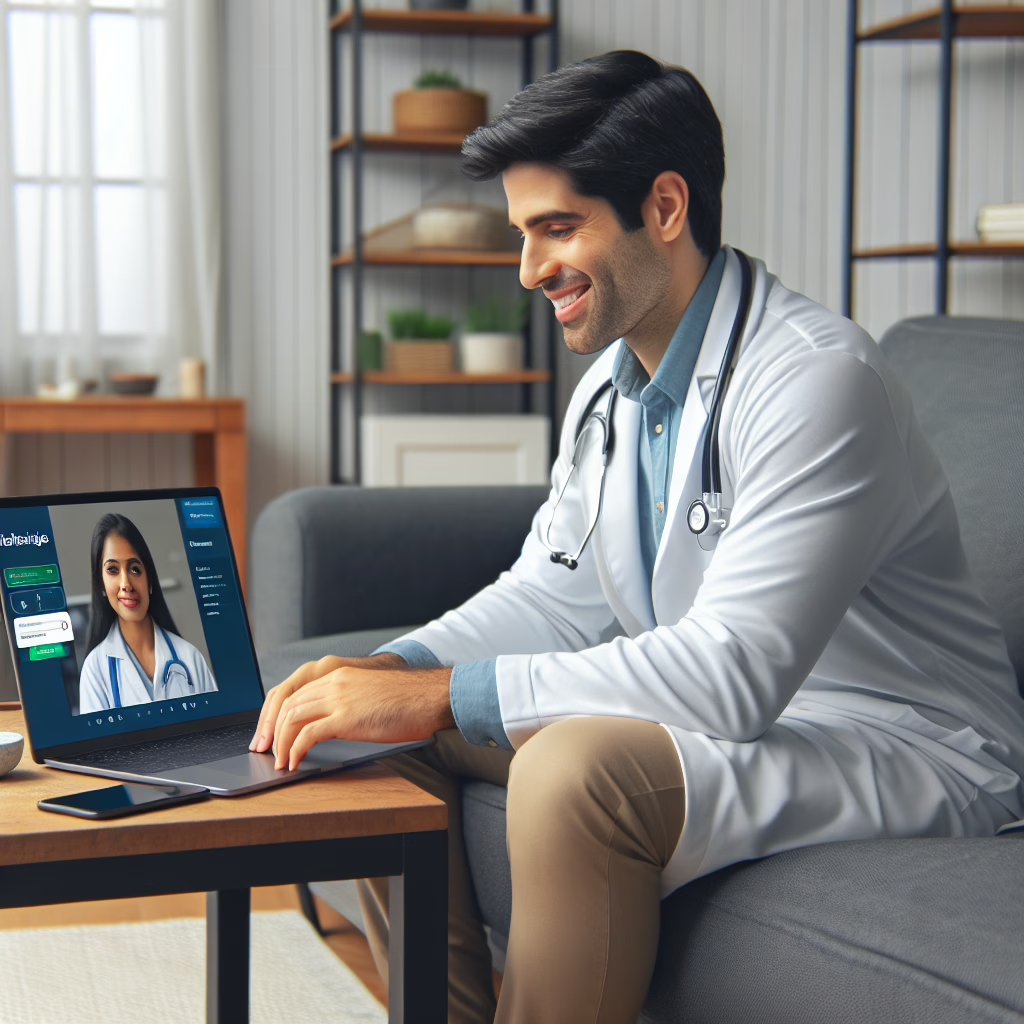In the ever-evolving world of healthcare, telehealth has emerged as a superhero, swooping in to save the day, especially when it comes to managing conditions like obesity and diabetes. At the center of this digital revolution lies a hero of its own: liraglutide. This medication has been a game-changer, but as we step into 2025, a shortage looms large. Let’s dive into how telehealth is adjusting its cape to tackle this challenge and keep patients on track.
The Telehealth Transformation
Telehealth isn’t just about video calls with your doctor in pajamas (though that’s a nice perk!). It’s an innovative way to provide care that overcomes barriers like distance and accessibility. With liraglutide becoming increasingly popular for weight management and type 2 diabetes treatment, patients often find themselves grappling with availability issues. Telehealth services allow patients to consult healthcare providers from the comfort of their homes, which is particularly helpful during times when medications are in short supply.
Imagine trying to fill your prescription for liraglutide only to find out it’s as rare as a unicorn! Thanks to telehealth, patients can connect with providers who might have alternative solutions or can help them navigate through the labyrinth of pharmacies that might still have stock. This way, while we may not have enough liraglutide on the shelves, at least we won’t be left in the dark about our options.
Liraglutide: The Magic Pill?
Liraglutide isn’t just any medication; it’s like having your cake and eating it too—if that cake helped you manage your weight and blood sugar levels! Designed to mimic a hormone that regulates appetite, liraglutide can lead to significant weight loss and better glucose control. However, like all good things, it’s not without its hiccups, especially when it comes to supply chain issues.
The FDA’s recent announcement about the liraglutide shortage has sent shockwaves through the medical community and among patients alike. With demand skyrocketing, manufacturers are scrambling to catch up. But fear not! Telehealth platforms are here to ensure that you don’t have to go cold turkey on your journey toward better health.
How Telehealth Can Help During Shortages
When facing a shortage of liraglutide, telehealth provides several advantages:
- Access to Multiple Prescribers: Telehealth allows you to consult with various healthcare providers who may have different insights or treatment alternatives available.
- Education and Support: Many telehealth platforms offer educational resources and support groups. If you’re feeling overwhelmed by the shortage news, you can find community support online.
- Prescription Management: Your telehealth provider can help manage your prescriptions more effectively, potentially finding you alternative medications or therapies if liraglutide remains elusive.
With these tools at their disposal, patients can feel empowered rather than helpless amidst supply shortages. Plus, there’s no need for awkward small talk in waiting rooms—thank goodness for virtual consultations!
The Future of Liraglutide and Telehealth
The future looks bright for both telehealth and liraglutide. As technology continues advancing at breakneck speed, we can expect even more innovative solutions for medication management. Imagine apps that automatically notify you when your prescription is available or virtual check-ins that remind you to take your medication! The integration of AI could revolutionize how we approach treatment.
As we move forward into 2025 and beyond, one thing is clear: telehealth will continue playing a pivotal role in bridging gaps in healthcare access. For those relying on liraglutide, embracing telehealth could be the key to maintaining their health journey despite any bumps along the way.
In conclusion, while we navigate the challenges posed by liraglutide shortages, let’s not forget how far we’ve come with telehealth. It’s more than just a safety net; it’s a lifeline that keeps us connected to our health goals even when our medications play hard to get. So put on those comfy pants and log in—it’s time for some health-enhancing conversations!
We’d love to hear your thoughts! How has telehealth changed your experience with medications? Share in the comments below!
A big thank you to Wired for their insightful article on this topic!

